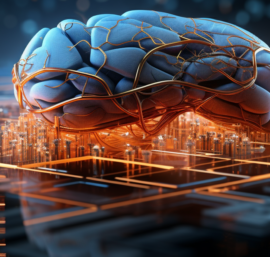Recent posts
Don't miss the latest trends
How Can Interference Benefit a Quantum System? Here Are 7 Ways
Unlike classical computing, which relies on bits that exist as either 0 or 1, quantum computing utilizes quantum bits, or qubits, which can exist in multiple states simultaneously due to the principle of superposition. This inherent feature of quantum mechanics, when coupled with the phenomenon of interference, opens up a new frontier in computational power…
When to Use Neural Networks: 10 Things to Consider
When to use neural networks can be a tricky question. Neural networks, modeled after the human brain’s neural structure, have revolutionized how machines process, interpret, and learn from data. Their versatility and power make them suitable for a wide array of applications, ranging from simple pattern recognition to complex decision-making processes. However, their effectiveness is…
Best Laptops for Machine Learning
With the development of easy to use libraries and availability of robust datasets, Machine Learning (ML) and Artificial Intelligence (AI) have become much more accessible fields for individual developers. Selecting the right laptop is crucial for professionals and enthusiasts in these areas. Here’s a look at some of the best laptops for ML and AI…
4 Free Cloud Based Quantum Machine Learning Services
Quantum Computing is no longer a buzzword confined to academic papers and tech visionary talks. It’s an evolving reality and a soon-to-be critical resource in the machine learning toolbox, with cloud-based platforms making quantum computing resources accessible to a broader audience. Explore four free cloud based quantum machine learning services that are shaping the future…
MLOps Jobs: Key Strategies and Roles in Advancing ML Projects to Production
With the expanding business applications of LLMs, MLOps jobs are quickly become critical to the success of companies. However, transitioning ML projects from theory to production is fraught with challenges. This is where Machine Learning Operations comes into play. MLOps is a comprehensive approach that includes best practices, conceptual frameworks, and a unique development culture…
What Are Foundation Models? Here Are 6 Key Aspects
What Are Foundation Models? Foundation models are a class of advanced machine learning models characterized by their extensive training on large-scale, diverse datasets. They differ from traditional AI models, which are typically designed for narrow, specific tasks. Foundation models, on the other hand, are versatile, capable of being fine-tuned and adapted to a wide array…
Exploring Basic Ensemble Learning With Python and Sci-Kit Learn in 4 Easy Steps
Ensemble learning is based on a simple yet powerful premise: by combining the predictions from multiple models, we can often produce a more accurate and reliable output than any single model could. This approach is particularly effective in reducing overfitting, where a model performs well on training data but poorly on unseen data. Types of…
Google DeepMind’s New Gemini Model 1.0: Leveling the LLM Playing Field
Google DeepMind has recently unveiled their new Gemini model, the company’s most capable and general AI model to date. Gemini stands out due to its multimodal nature, meaning it can process and understand various types of information – text, code, audio, images, and video. This capability allows Gemini to operate seamlessly across different data types,…
MMMU: An AI Benchmark in the Quest for Expert AGI
A new AI benchmark may just be a key to measuring whether or not an AI model is really AGI. Artificial General Intelligence (AGI) AGI is conceptualized as AI that equals or surpasses human abilities in a wide array of tasks. A major challenge in this field has been the absence of a universally accepted,…
Cosine Similarity: A Cornerstone of Vector Databases
In the fields of information retrieval and natural language processing, vector databases have significantly altered the methodologies for storing, searching, and analyzing extensive data sets, especially those comprising text. Central to these changes is a mathematical measure called cosine similarity, which has emerged as a critical tool in the domain of large language model searches.…










